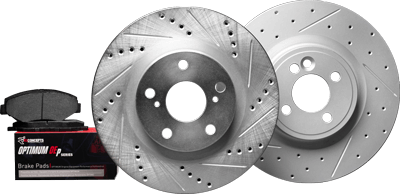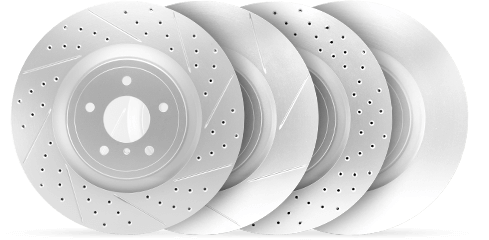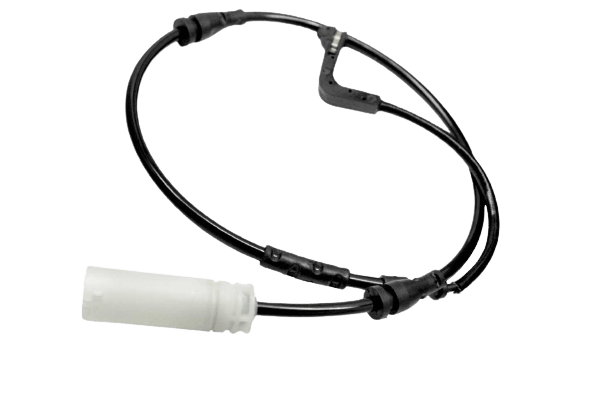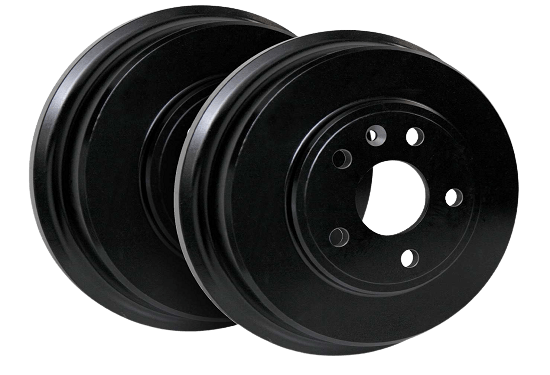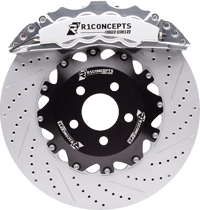Brakes are overlooked and often neglected, but they’re certainly one of the most crucial parts that you need to maintain. Most cars use what are known as disc brakes. A hydraulic system filled with brake fluid triggers a set of padded clamps known as calipers, causing them to squeeze together on a disc known as the rotor. The friction that occurs between the brake pads and rotor eventually stops the car. Paying attention to the warning signs that involve any of these parts that indicate a need for service can mean the difference between life and death on the road in any given day.
Stop, look, and listen; there are some obvious signs that your brakes need servicing, such as the brake light appearing on your car’s dashboard or the feeling that your vehicle is taking longer to stop than it should, and listening for a harsh grinding sound. In either of these cases, you should visit & consult your local mechanic for a brake check as soon as possible. But do you know what the other signs are that could indicate an ailing brake system? Here, we deliver some other signs that just may help you put the brakes, on a serious accident in the future.
The brake pedal pulsates as you moderately apply the brakes.
You’re driving, and you press on the brakes, only to feel that pulsating sensation. The first diagnosis that comes to mind could be a warped brake rotor. One of the most common causes of a warped brake rotor is the improper installation of the wheel or simply it indicates that the disc brake rotors needs services and/or is at end of its life.
The brake pedal gradually drops to the floor although the pressure applied on the brake pedal is steady.
This may indicate a faulty brake master cylinder or air in the system. Check the area around the master cylinder for leaking brake fluid. This can indicate a damaged reservoir or the seals inside the master cylinder itself leaking and allowing the fluid to escape.
The brake pedal requires excessive force to apply the brakes.
Over time, as you can imagine, the pads will begin to wear thin, which means they’ll become less effective at slowing and stopping your car. However brakes when subjected to undue heat stress may glaze and become inefficient or brake pads may simply be worn out. Calipers or wheel cylinders may have become clogged and need cleaning or replacing. The brake booster could be faulty and need repairs or servicing.
The brake smoke or emits a burning smell when you stop.
The most common reason to smoking brakes is a sticking caliper. Unless the brake pads are new, this may indicate that the calipers are seizing. If the caliper has seized, you may also notice one of your brake pads is very much worn down compared to the opposite or correctly functioning caliper. High spirited driving can also be indicated by the rotors smoking.
The vehicle pulls to one side as the brakes are applied
The usual cause of this symptom is contamination on the braking surface or a malfunctioning caliper. It can also be caused by different tire sizes on the right and left wheels.
The vehicle makes a distinct grinding noise when you apply the brakes.
This may indicate that the brake pads have completely worn out and damage to the brake rotors are already occurring. At this point is very critical to install new brake pads.
Any of the above situations requires immediate attention and should seek or visit a professional brake specialist to diagnose the issues and/or do the required repairs. For many owners, maintaining the vehicle’s brakes is something that is often overlooked. But keeping your brakes properly calibrated and in good working order can prevent costly repairs down the line. More importantly, help you avoid any types of collision.


